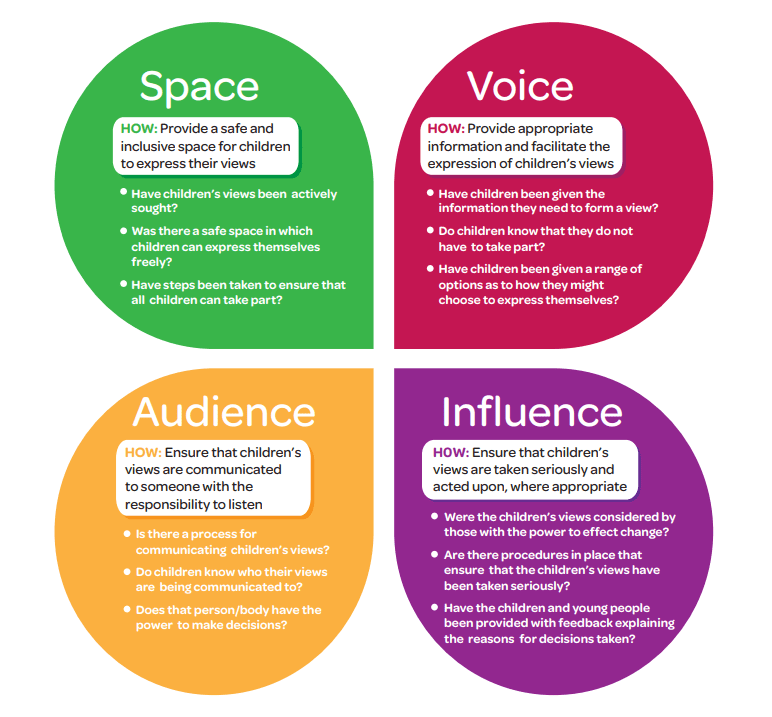Children Should be Seen and Heard :
The Importance of Child Voice and Participation
In this edition of the LINC Blog, Dr. Linda Kelly explores the critical importance of child voice and participation in early childhood settings. Highlighting key insights from the Lundy Model of Participation and her own research, she emphasises how inclusive and playful approaches can empower children to express their views and shape their learning experiences.
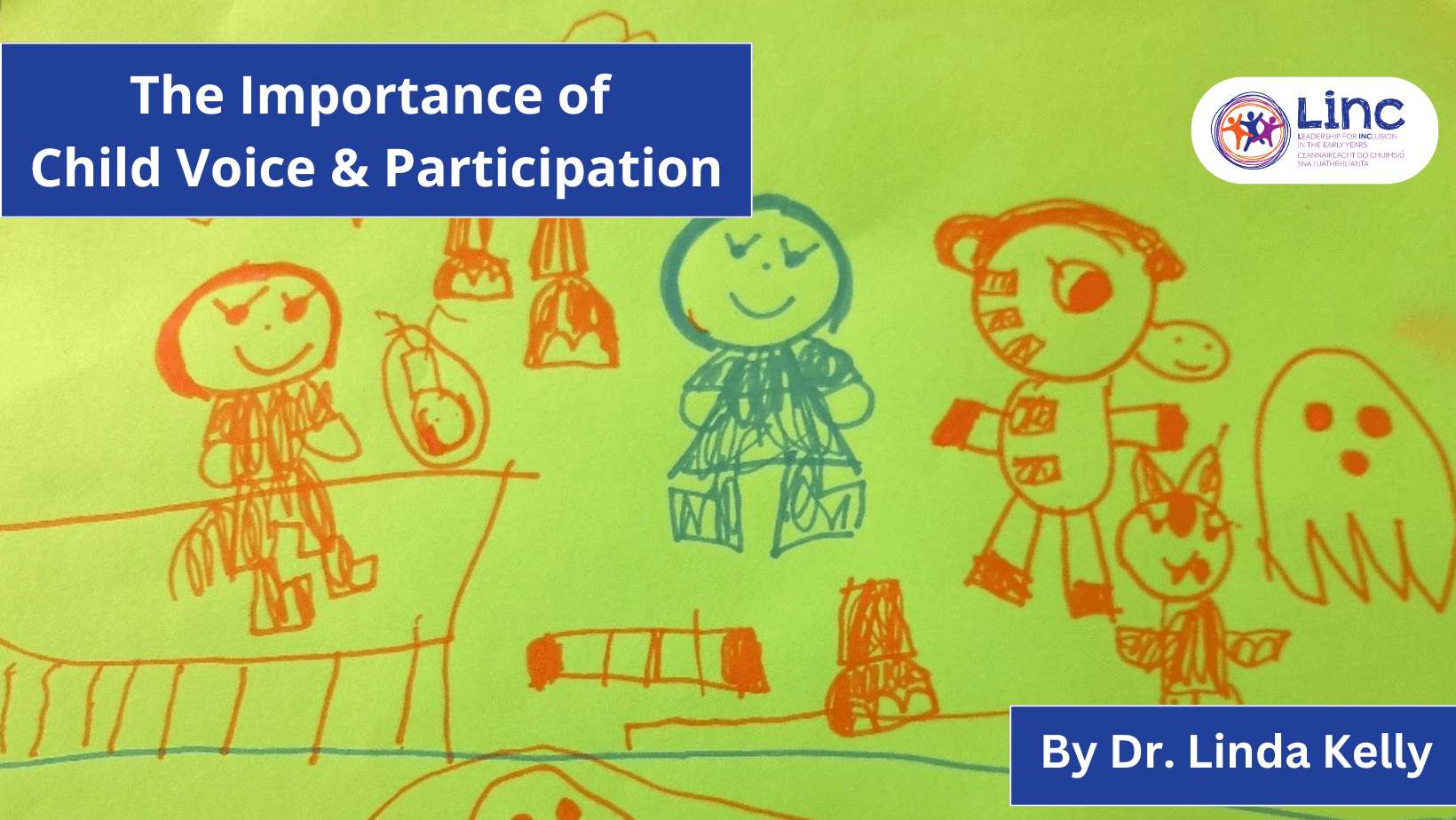
A few years ago, I attended a conference organised by the Children’s Research Network [1]. The conference theme was “Children Should be Seen and Heard”, a compelling rebuttal to the outdated notion that adults inherently know what’s best for children without any input from children themselves. The conference provided a timely reminder of the importance of child participation and children’s right to have their views considered and taken into account in matters affecting them, as encapsulated in Article 12 of the United Nations Convention on the Rights of the Child [2]. As a researcher, I was provided with much food for thought on how we include children, not as subjects of research, but as active participants and how we can facilitate children in expressing their views.
Similarly, children are not subjects of early childhood education but are active agents whose unique strengths, abilities, dispositions and interests shape their earliest learning experiences. By placing children at the centre of their learning, listening to children and responding to their views we are supporting and empowering them to develop the competencies for expressing agency in their world. Síolta, Ireland’s National Quality Framework for Early Childhood Education, highlights the crucial role of early years professionals who have a duty “to enable every child to exercise choice and to use initiative as an active participant and partner in their own development” [3].
Much discussion on child participation is guided by the Lundy Model of Participation [4], developed by Laura Lundy from Queen’s University. The four elements of the Lundy model – Space, Voice, Audience and Influence – provide a clear framework for understanding child rights-based participation. In the image below, Lundy provides a checklist to guide the model’s application to policy and practice [5]. You might find it useful to consider these questions when reflecting on approaches to ensuring children’s participation in your own context.
The concept of child participation emphasises the significance of the voice of the child. As we know, however, children draw upon multiple modes of communication to express their views. For example, children communicate through spoken, visual or written modes, through drawing, gesture, facial expression, eye gaze, movement or a combination of these aspects to convey their perspectives. Furthermore, play is a primary context for young children’s early learning and interactions and engaging in playful exchanges with children can support them in sharing their interests and experiences with us.
As an example, in the research we are conducting as part of the evaluation of the LINC Programme, we are using inclusive playful participatory approaches to capturing the voice of the child and gathering their perspectives on how they experience inclusion in their early years settings. Our playful approach involves facilitating children to represent their experiences of inclusion by creating a map of their setting and learning about their views and insights as they lead us on a tour of their environment, supported by these mapped representations. We feel it so important to gather children’s views as part of the evaluation because they are key stakeholders in the programme and ultimately children’s experiences of inclusion are the most important indicators of LINC’s success.
In the maps shared below, children in our research communicated the importance of friendships, play, and being outdoors in their early years setting. Through their maps and tours of the setting, these children highlighted their favourite areas, both indoors and outdoors, which were equipped with fun and accessible materials and provided opportunities for all children to interact and collaborate.
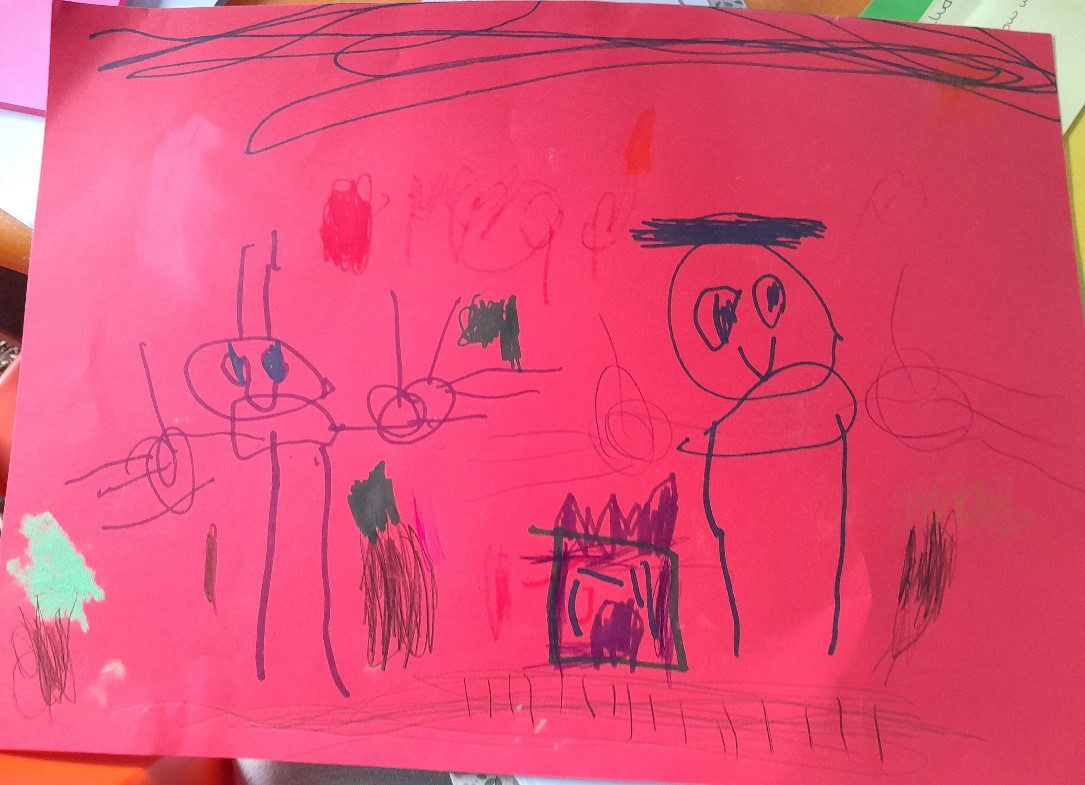
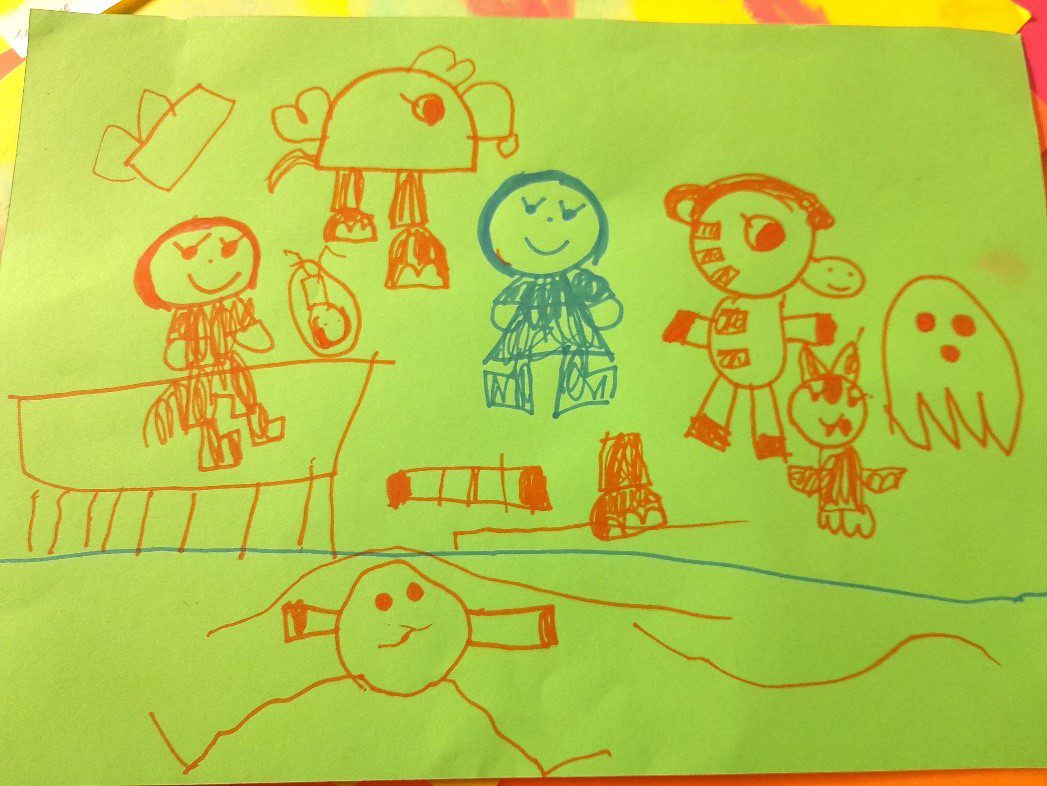
Some other practical ideas for consulting with children you might find useful include:
- Observations
- Circle time discussions
- Puppet play
- Role play
- Draw and discuss
- Photography/videography for children to record their own perspectives
Respecting and facilitating children’s multisensory communication through playful approaches helps ensure that all children’s voices can be heard in matters which affect them. Early years professionals, who have built positive relationships with children are well-positioned to create a safe environment for children to express their views, to listen to and understand children’s multimodal communicative bids, and to respond to children’s choices and decisions in order to support their participation in early years settings.
Child participation is about providing children with opportunities to express their views, share their ideas and perspectives, and to participate in making choices and decisions on matters affecting them. Listening to the voice of the child, and acknowledging the diverse ways in which children communicate, is fundamental to fostering inclusive practices in the early years. By listening to the voice of the child and including them in decisions, we can best support children’s unique needs, interests, and rights. In turn, this inclusive and democratic approach enhances service quality and ensures positive outcomes for children.
We are currently seeking early years settings that employ a LINC graduate who completed the programme between 2021-2023 to take part in our child participatory research which we are conducting as part of the evaluation of the LINC Programme. If you would like to take part, or would like more information, you can register your interest here.
[1] See https://www.childrensresearchnetwork.com/
[2] United Nations Committee on the Rights of the Child (2009) General Comment No. 12 The right of the child to be heard, available at https://digitallibrary.un.org/record/671444?ln=en&v=pdf
[3] Centre for Early Childhood Development & Education (2006) Síolta Standard 1 Rights of the Child https://siolta.ie/media/pdfs/Research%20Digest%20-%20Rights%20of%20the%20child.pdf
[4] Lundy, L. (2007) “‘Voice’ is not enough: Conceptualising Article 12 of the United Nations Convention on the Rights of the Child”, British Educational Research Journal 33(6), 927–942, doi:10.1080/01411920701657033.
[5] Department of Children, Equality, Disability, Integration and Youth (2015) National Strategy on Children and Young People’s Participation in Decision-Making 2015-2020, p. 22, available at https://www.gov.ie/en/publication/9128db-national-strategy-on-children-and-young-peoples-participation-in-dec/
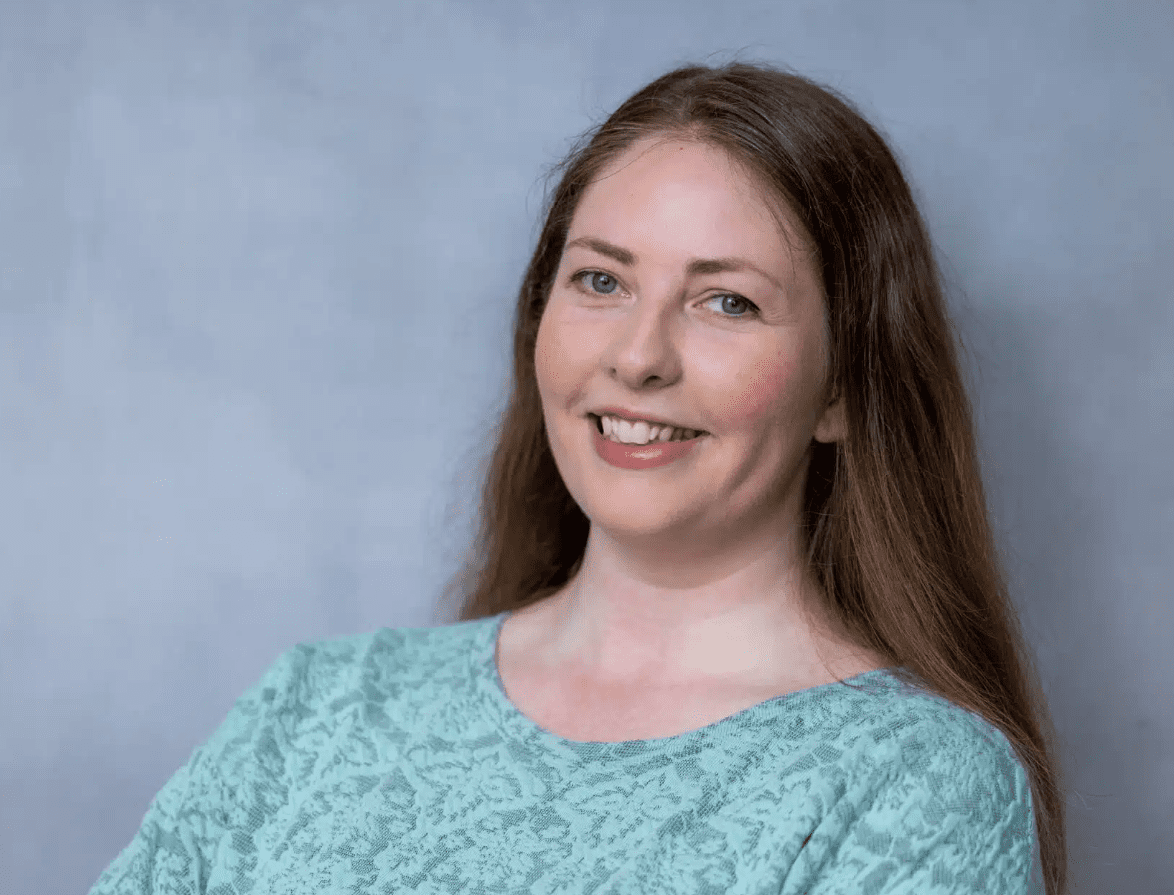
Dr. Linda Kelly
Researcher with Early Childhood Ireland
Dr Linda Kelly is a researcher with Early Childhood Ireland. She has also worked as the LINC Programme Researcher since 2021, contributing to the evaluations of the LINC and LINC+ Programmes. She previously completed her PhD in Developmental Psychology with the Infant and Child Research Lab, Trinity College Dublin. Her thesis investigated the importance of the early parent-child interactive environment for children’s development. Linda holds a joint BA in Psychology and French and an MSc in Applied Psychology. Her research interests include observational methods in developmental psychology, play, child participatory research methods, and inclusion.
You may also like:
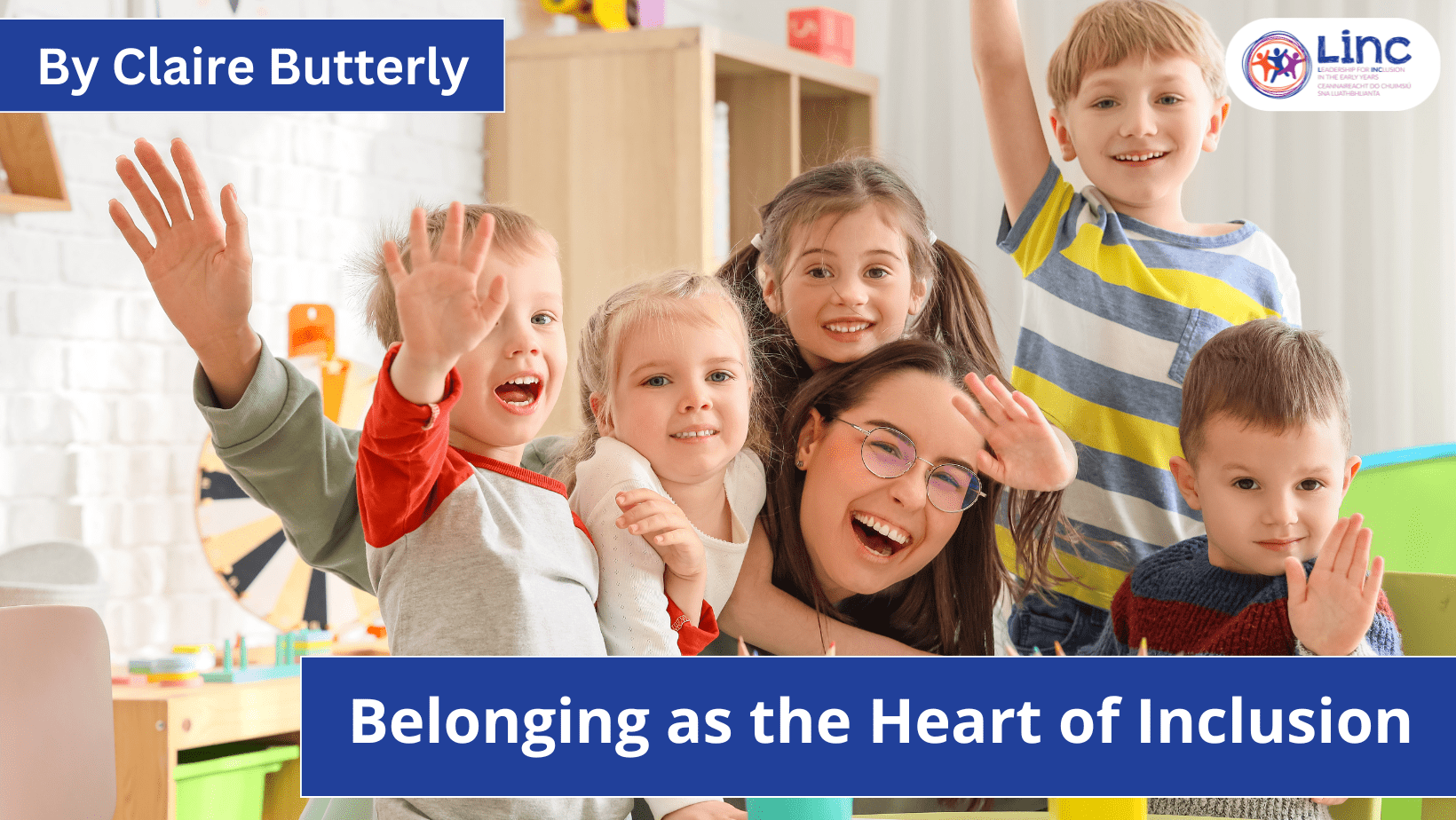
Belonging as the Heart of Inclusion
Belonging as the Heart of Inclusion In this edition of the LINC Blog, LINC National Coordinator Claire Butterly reflects on belonging as the heart of inclusive practice in Early Learning and Care and School-Age Childcare settings. Drawing on the principles of Aistear,...
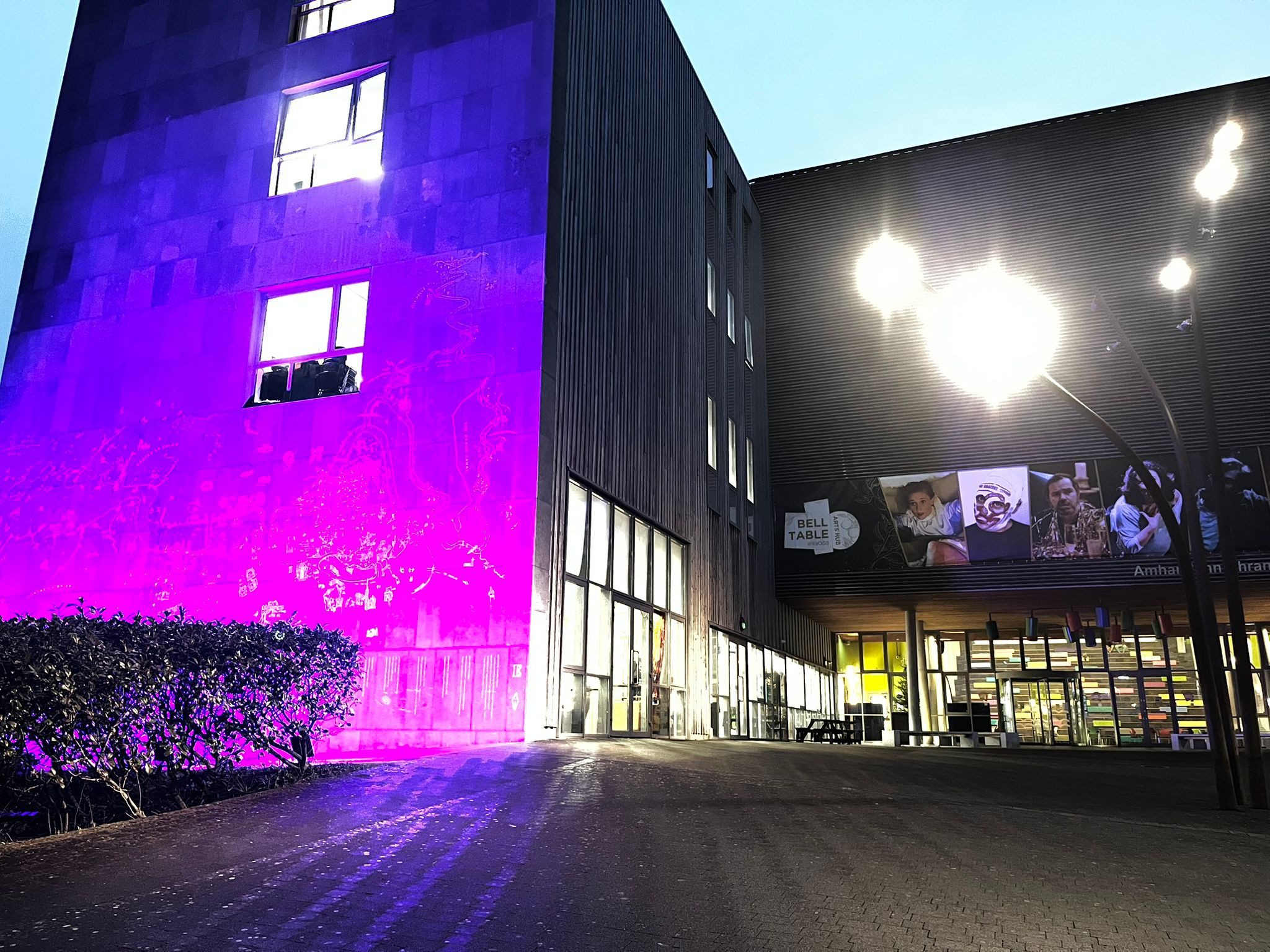
LINC Shines a Light on Inclusion for the International Day of Persons with Disabilities 2025
LINC Shines a Light on Inclusion for the International Day of Persons with Disabilities 2025 The Leadership for INClusion in the Early Years (LINC) Programme marked the United Nations International Day of Persons with Disabilities (IDPD) this evening by illuminating...
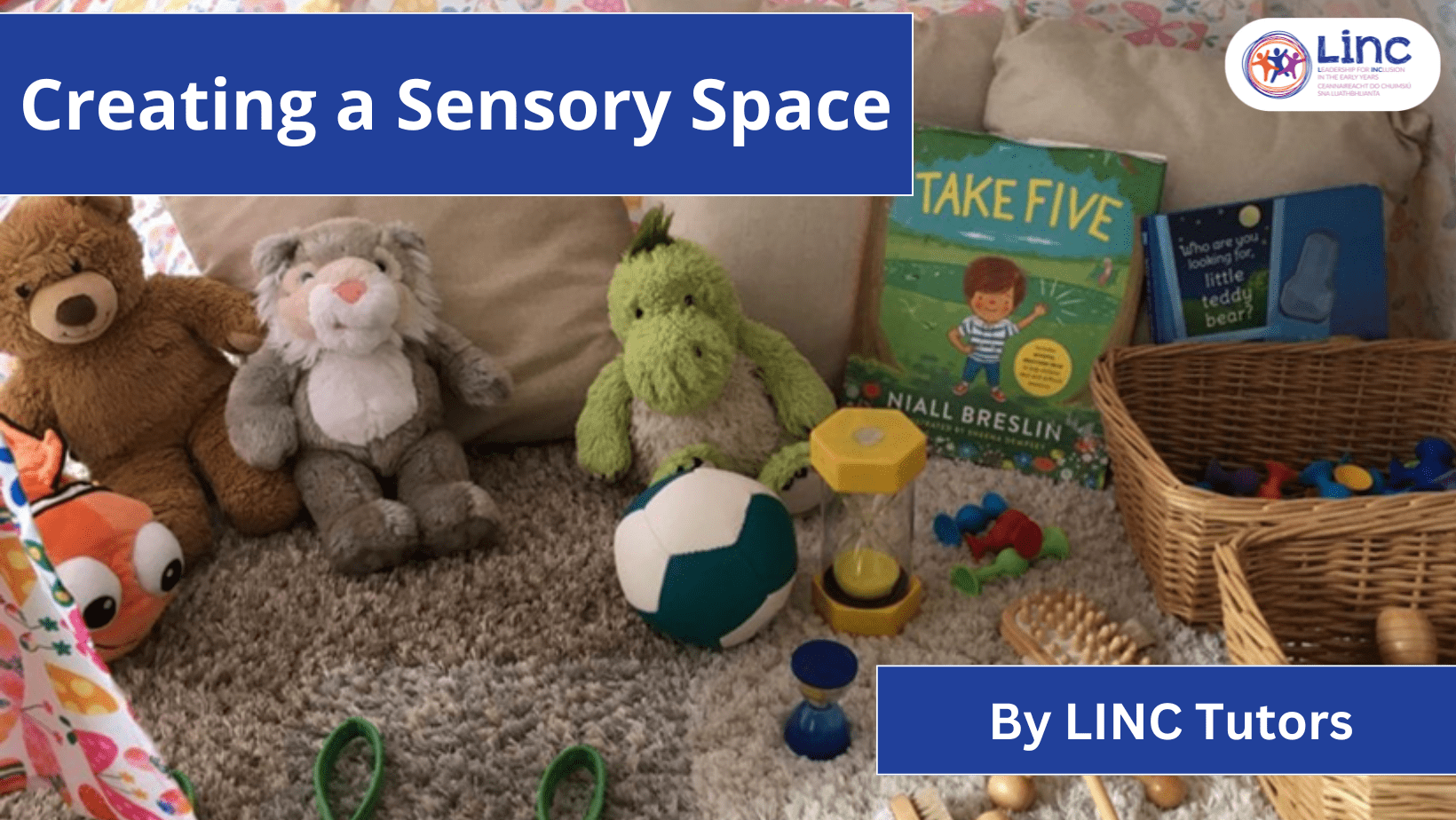
Creating a Sensory Space
Creating a Sensory Space In this edition of the LINC blog, Claire Butterly, Karina Abbott, Ann Donnellan, Carole Dee, Linda Madden, Margaret Joyce and Paula Harte highlight some considerations when planning a sensory space in your Early Learning and Care setting....

